



People with Disabilities

Meeting with Cash

















People with Disabilities



Meeting with Cash












Sustainability Message by
Mr. Magd Darwish
CEO seven for Consumer Finance
Embracing Sustainability in Consumer Finance for a Brighter Future

Sustainability is not just a concept; it is a guiding principle that shapes our decisions and actions, driving us towards a more responsible and prosperous future.
Consumer finance plays a pivotal role in society, providing essential financial services that empower individuals and fuel economic growth.
seven plays a significant role in the economy, and their impact on sustainability can be analyzed from various perspectives:
Access to Credit:
Economic Empowerment: seven provide instant credit to individuals who might not have access to traditional banking services. This can empower individuals and businesses, promoting economic growth.
Financial Inclusion: By offering loans and credit products, these companies contribute to financial inclusion, which is a critical component of sustainable economic development.
Innovation and Technology:
Green Financing: As seven, we offer green loans and other financial products that promote environmentally friendly practices. This can drive consumer behavior towards more sustainable choices such as the solar system product and many more.
Digital Finance: seven is adopting the digital technologies which reduces the need for physical branches, lowering the environmental footprint associated with traditional banking operations.
Strategies for Enhancing Sustainability
Promoting Financial Literacy: Educating consumers about responsible borrowing and financial management which will help mitigate the risk of over indebtedness and promote sustainable economic practices.
Developing Sustainable Financial Products: Offering loans and credit products that incentivize sustainable practices, such as energy-efficient home improvements or electric vehicle purchases, which drives the consumer behavior towards sustainability.
Implementing Green Operations: Reducing the environmental footprint of our operations by adopting digital solutions, using renewable energy, and minimizing waste by which the operations more sustainable.
Ethical Lending Practices: Ensuring transparency and fairness in lending practices which prevent predatory lending and protect consumers from falling into debt traps.
Conclusion
seven Consumer finance has a complex and multifaceted impact on sustainability. Since we provide essential financial services that promote economic growth and inclusion, we also have the potential to contribute to financial instability and environmental degradation. By adopting sustainable practices and promoting responsible lending. By incorporating sustainability practices into our consumer finance activities, we can create value that extends beyond financial returns. As we move forward, let us collectively innovate, collaborate, and lead the way in sustainable consumer finance practices. Let us set an example for the industry and demonstrate that profitability and sustainability can go hand in hand, creating a win-win situation for all stakeholders. I am confident that by working together and prioritizing sustainability, we can build a brighter future for our company, our customers, and the world at large.
Plastic Free July
Globally – Public concern for plastic pollution is high but people often question what difference they can make. Plastic Free July is a global social movement turning the tide on plastic waste, one choice at a time. This movement is flipping the script by focusing on solutions and demonstrating the difference collective action can make.
Working with a behavioral scientist, Plastic Free July introduced the concept that people can ‘choose to refuse’ single-use plastics in their daily lives and changed the dialogue on personal plastic consumption and empowering communities – rather than focus on clean-ups and recycling. The movement is an entry point to increase public literacy and support behavior change to finally ‘turn off the tap’ of plastic waste.
Since 2011, people have taken the challenge to go plastic free in July by choosing to refuse the single-use plastics we use daily. The unique month-long challenge empowers people to act and share positive stories about solutions. By focusing on reduction and avoidance, it has been proven to create long term behavior change with 87% of participants making at least one long lasting change.
Globally, in 2021, participants reduced non-recoverable (landfill) waste by 1.2 billion and recyclable waste by 900 million kg, including plastic consumption by 0.3 million tons. It is astonishing to note that this movement –mobilizing millions of people- started with only 40 individuals.
A staggering 26% of consumers (at least 313 million people) surveyed by Ipsos were aware of Plastic Free July and 140 million had participated with sign-ups from 190 countries and replicated by schools, councils and companies. Today, this global social movement inspires people to be part of the solution in their own lives, connects community for action and calls on business and governments to end plastic pollution. The global plastic treaty agreed upon at the United Nations Environment Assembly shows that leaders are listening.
Plastic Free July
Globally – Public concern for plastic pollution is high but people often question what difference they can make. Plastic Free July is a global social movement turning the tide on plastic waste, one choice at a time. This movement is flipping the script by focusing on solutions and demonstrating the difference collective action can make.
Working with a behavioral scientist, Plastic Free July introduced the concept that people can ‘choose to refuse’ single-use plastics in their daily lives and changed the dialogue on personal plastic consumption and empowering communities – rather than focus on clean-ups and recycling. The movement is an entry point to increase public literacy and support behavior change to finally ‘turn off the tap’ of plastic waste.
Since 2011, people have taken the challenge to go plastic free in July by choosing to refuse the single-use plastics we use daily. The unique month-long challenge empowers people to act and share positive stories about solutions. By focusing on reduction and avoidance, it has been proven to create long term behavior change with 87% of participants making at least one long lasting change.
Globally, in 2021, participants reduced non-recoverable (landfill) waste by 1.2 billion and recyclable waste by 900 million kg, including plastic consumption by 0.3 million tons. It is astonishing to note that this movement –mobilizing millions of people- started with only 40 individuals.
A staggering 26% of consumers (at least 313 million people) surveyed by Ipsos were aware of Plastic Free July and 140 million had participated with sign-ups from 190 countries and replicated by schools, councils and companies. Today, this global social movement inspires people to be part of the solution in their own lives, connects community for action and calls on business and governments to end plastic pollution. The global plastic treaty agreed upon at the United Nations Environment Assembly shows that leaders are listening.
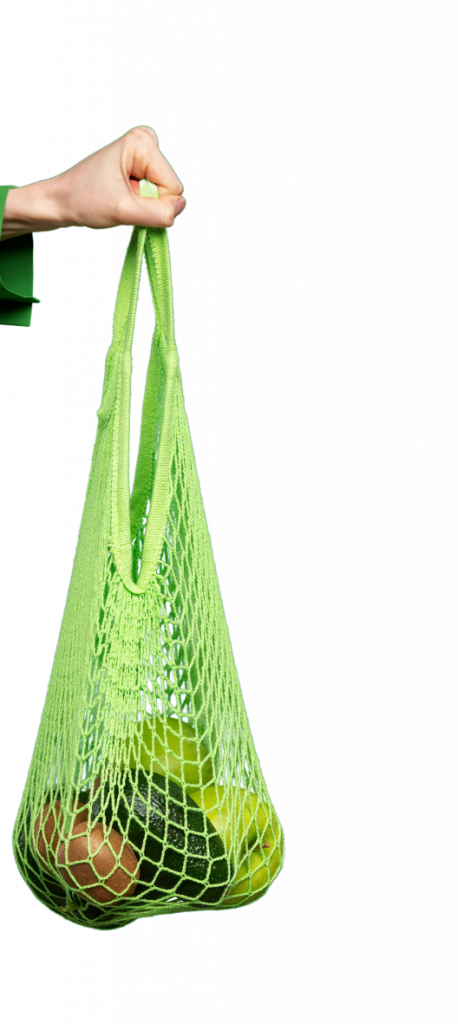

This Month
Mohamed El-Husseini Secures Second Place in the National Paralympic Swimming Championship
Swimmer Mohamed El-Husseini, who has crossed the English Channel, won second place and a silver medal in the 3-kilometer open water event at the National Paralympic Swimming Championship held in Alexandria at the headquarters of the Egyptian Diving, Rescue, and Swimming Federation.
It’s worth mentioning that Egyptian swimmer Mohamed El-Husseini’s passion for swimming began when he was six years old and continued until he was 17.
During this time, he competed in local and international championships, winning numerous medals. He also participated in the World Championship in Florence, Italy, in 2016, and in three international open water championships in Hurghada. Additionally, he raised the Egyptian flag during the opening of the Suez Canal and had significant involvement in open water swimming.





Expanding Opportunities for
People with Disabilities
Expanding upon the remarkable achievements of our Train to Sustain initiative, we are delighted to share the exciting news of our latest endeavor: the employment of people with diverse disabilities. This significant step seamlessly aligns with our unwavering commitment to fostering inclusivity throughout our organization. It is with great pleasure that we welcome 11 new hires this month, each bringing their unique talents and abilities to our various departments. We proudly welcome individuals with physical disabilities, hearing impairment, Autism, Down Syndrome, representing a broad spectrum of disabilities
To ensure their success and growth, we will tailor training programs that will empower these people to excel in their respective roles. We are dedicated to providing a supportive work environment that nurtures both their personal and professional development. By offering equal opportunities and fostering an atmosphere of inclusivity, we are steadfast in our pursuit of creating a workforce that authentically reflects the richness and diversity of our society.
Our firm belief is that the empowerment of people with disabilities not only enhances their lives but also enriches the very fabric of our company culture. This empowerment serves as a catalyst for innovation, propelling us toward the creation of a stronger, more vibrant team. Together, we are charting a path towards a future that embraces both inclusivity and compassion, where the diverse abilities of all employees are celebrated and valued.
With great excitement, we embark on this journey, knowing that it will shape a workplace that is truly exceptional and inspiring. We invite you to join us as we continue to push boundaries, break barriers, and foster an environment that champions the limitless potential of every individual, regardless of their abilities. Together, we are forging a brighter and more inclusive future.


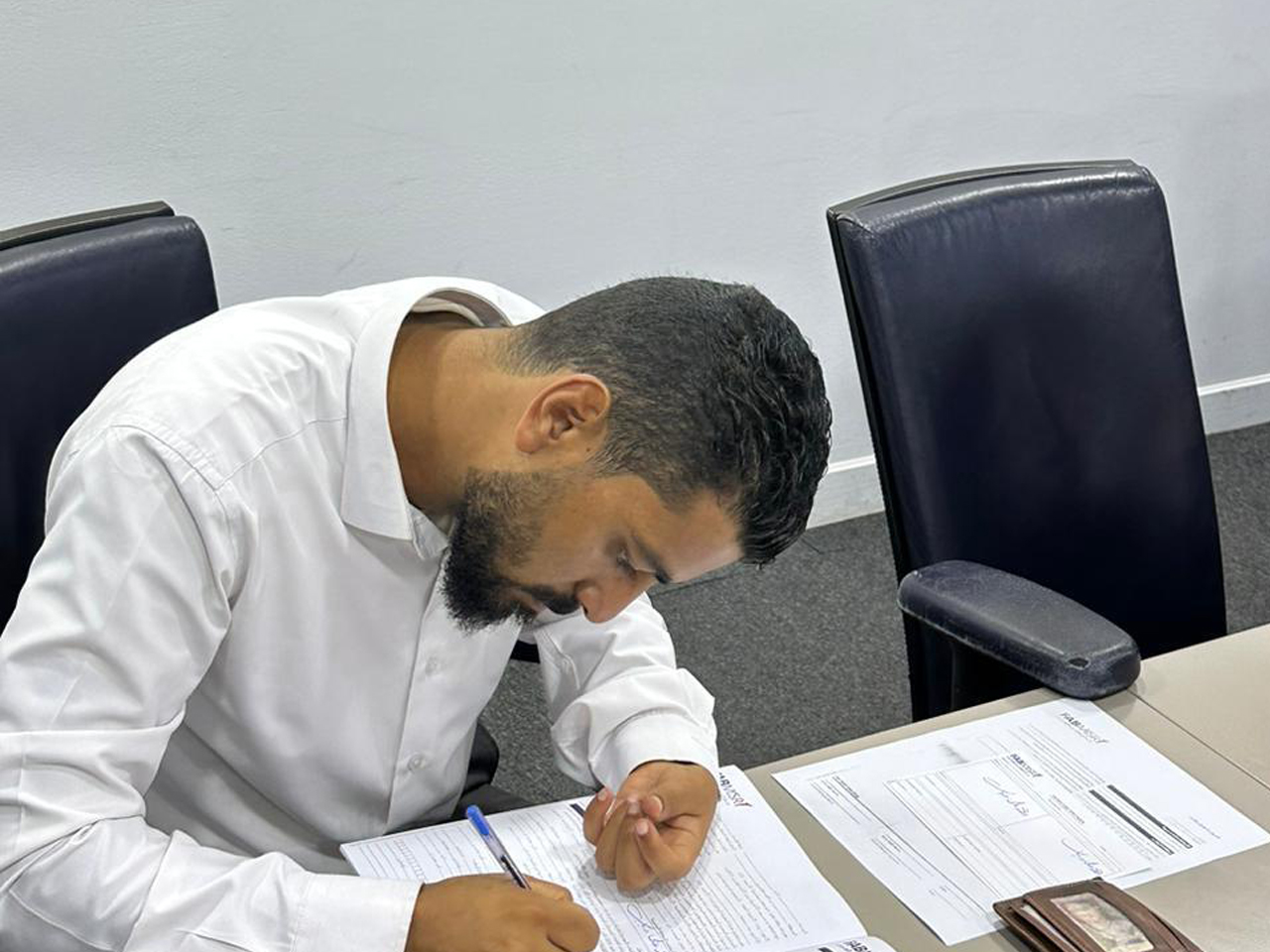


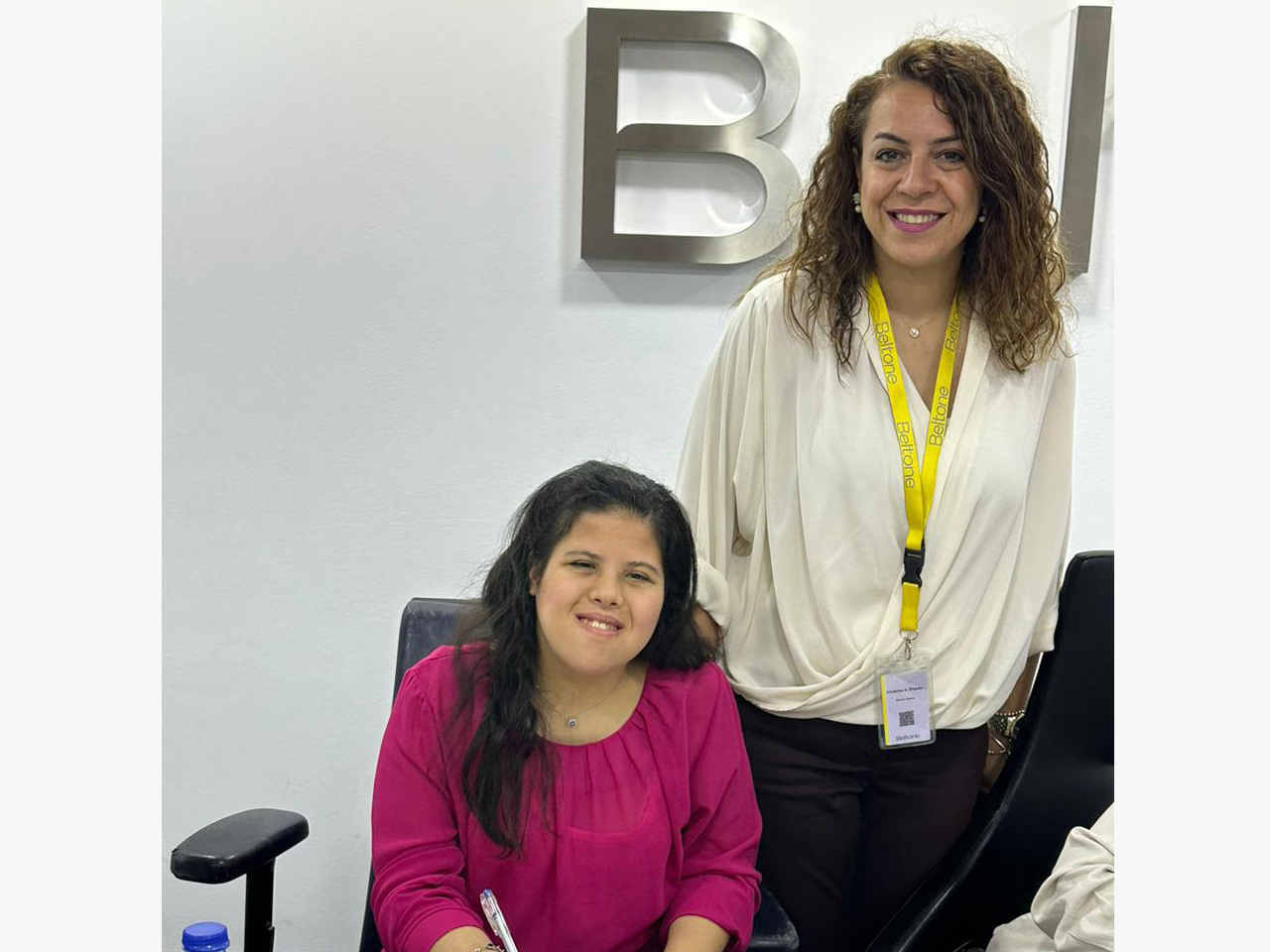

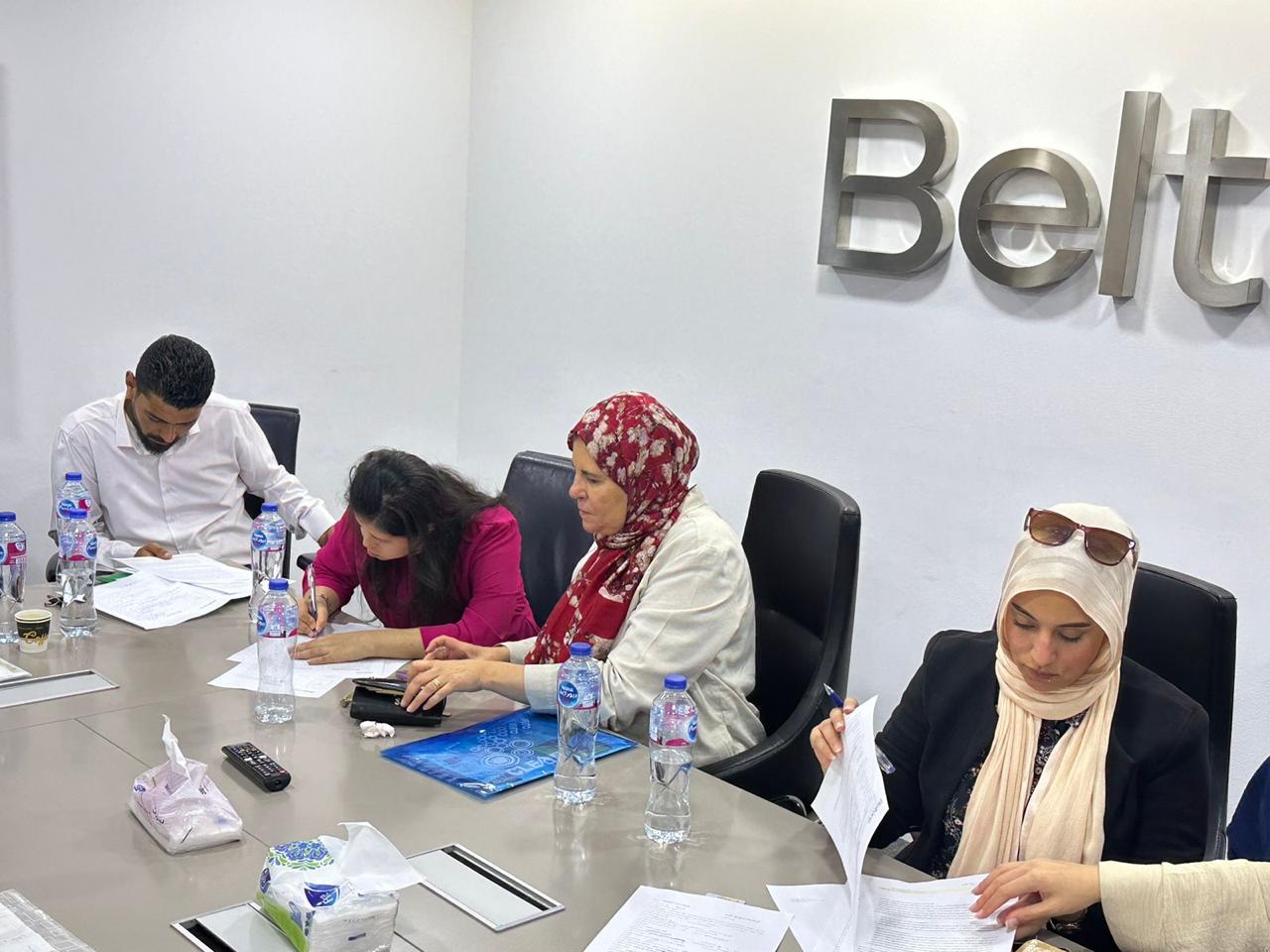

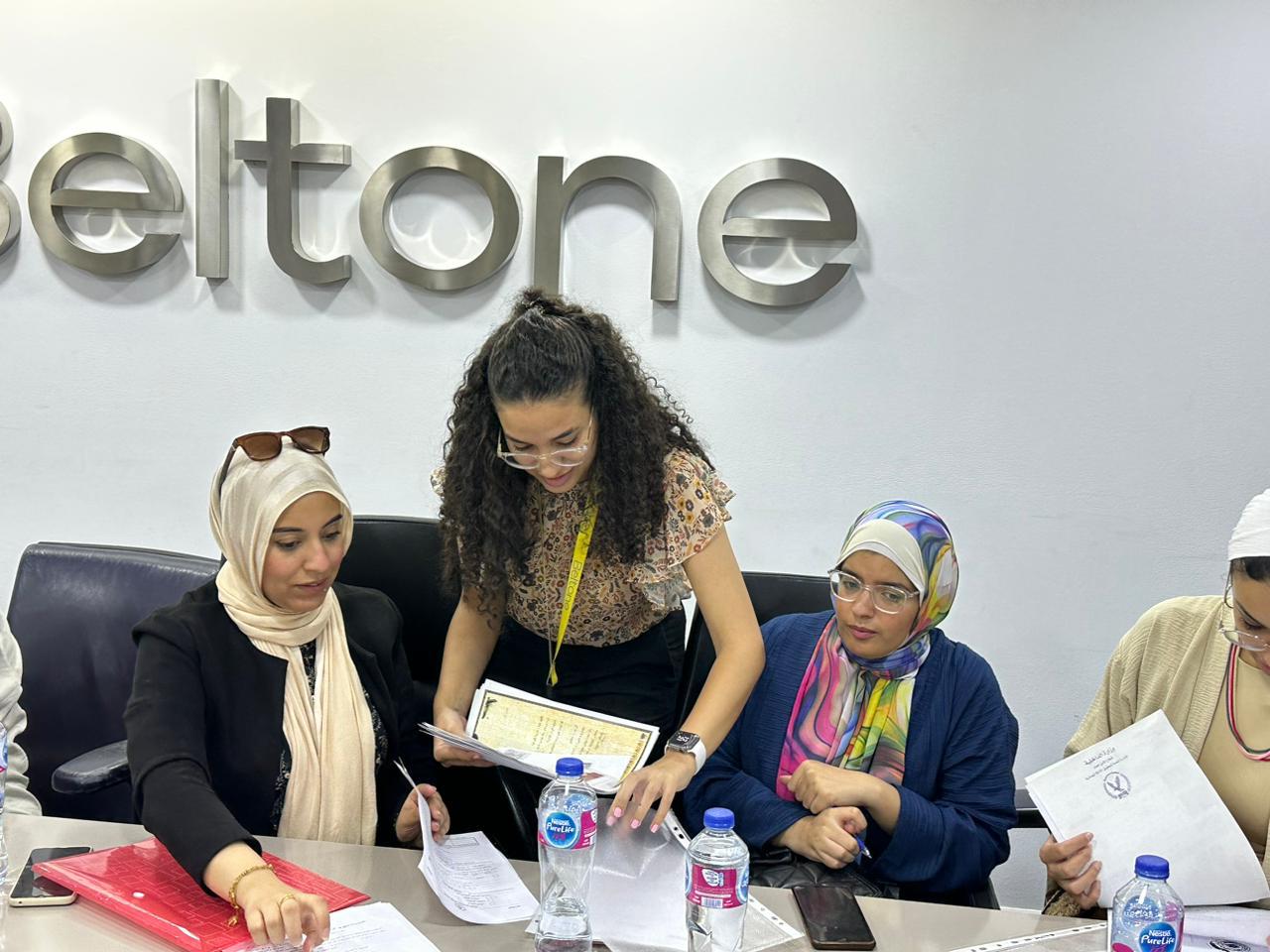
Expanding Opportunities for
People with Disabilities
Expanding upon the remarkable achievements of our Train to Sustain initiative, we are delighted to share the exciting news of our latest endeavor: the employment of people with diverse disabilities. This significant step seamlessly aligns with our unwavering commitment to fostering inclusivity throughout our organization. It is with great pleasure that we welcome 11 new hires this month, each bringing their unique talents and abilities to our various departments. We proudly welcome individuals with physical disabilities, hearing impairment, Autism, Down Syndrome, representing a broad spectrum of disabilities
To ensure their success and growth, we will tailor training programs that will empower these people to excel in their respective roles. We are dedicated to providing a supportive work environment that nurtures both their personal and professional development. By offering equal opportunities and fostering an atmosphere of inclusivity, we are steadfast in our pursuit of creating a workforce that authentically reflects the richness and diversity of our society.
Our firm belief is that the empowerment of people with disabilities not only enhances their lives but also enriches the very fabric of our company culture. This empowerment serves as a catalyst for innovation, propelling us toward the creation of a stronger, more vibrant team. Together, we are charting a path towards a future that embraces both inclusivity and compassion, where the diverse abilities of all employees are celebrated and valued.
With great excitement, we embark on this journey, knowing that it will shape a workplace that is truly exceptional and inspiring. We invite you to join us as we continue to push boundaries, break barriers, and foster an environment that champions the limitless potential of every individual, regardless of their abilities. Together, we are forging a brighter and more inclusive future.











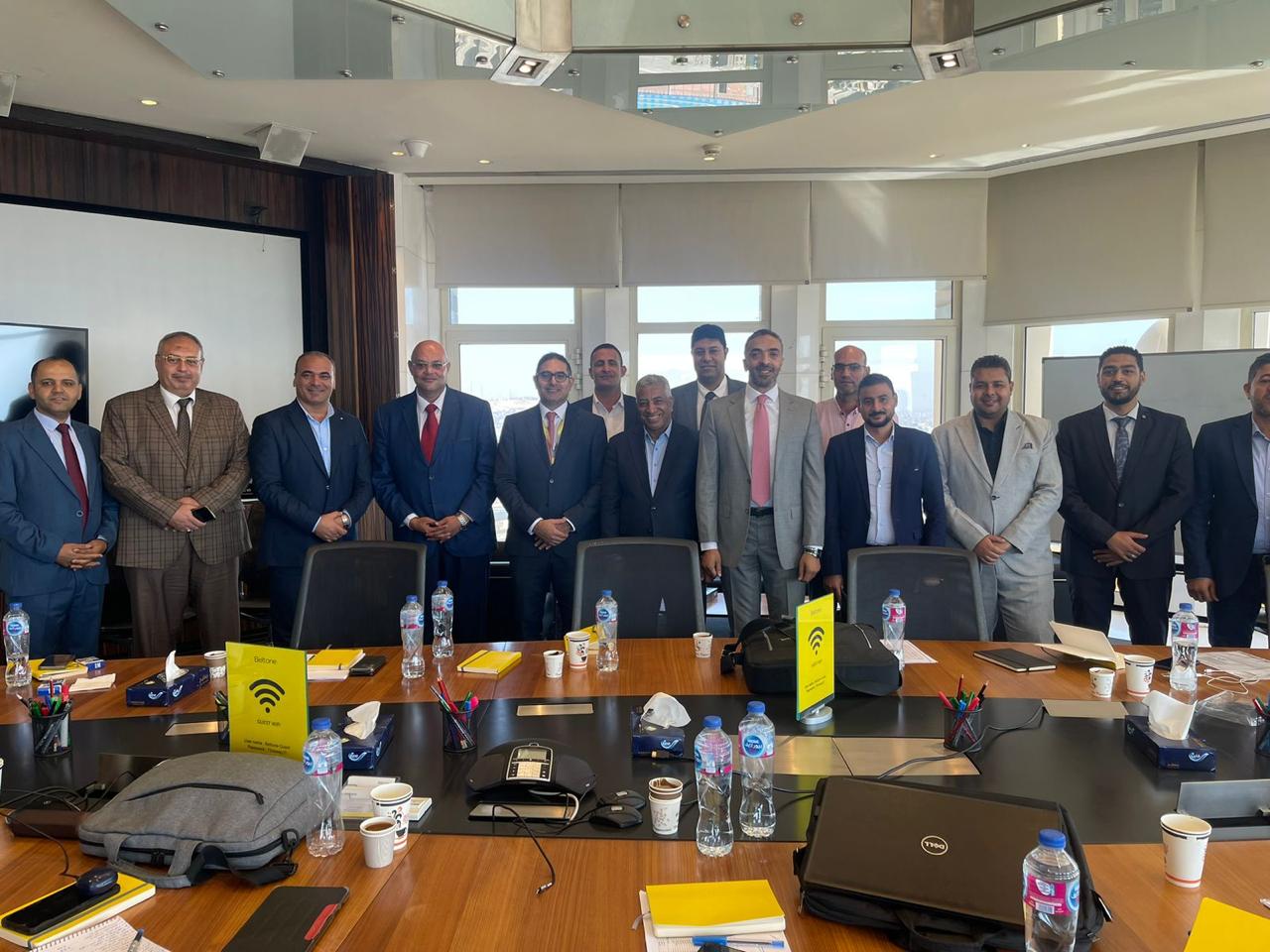
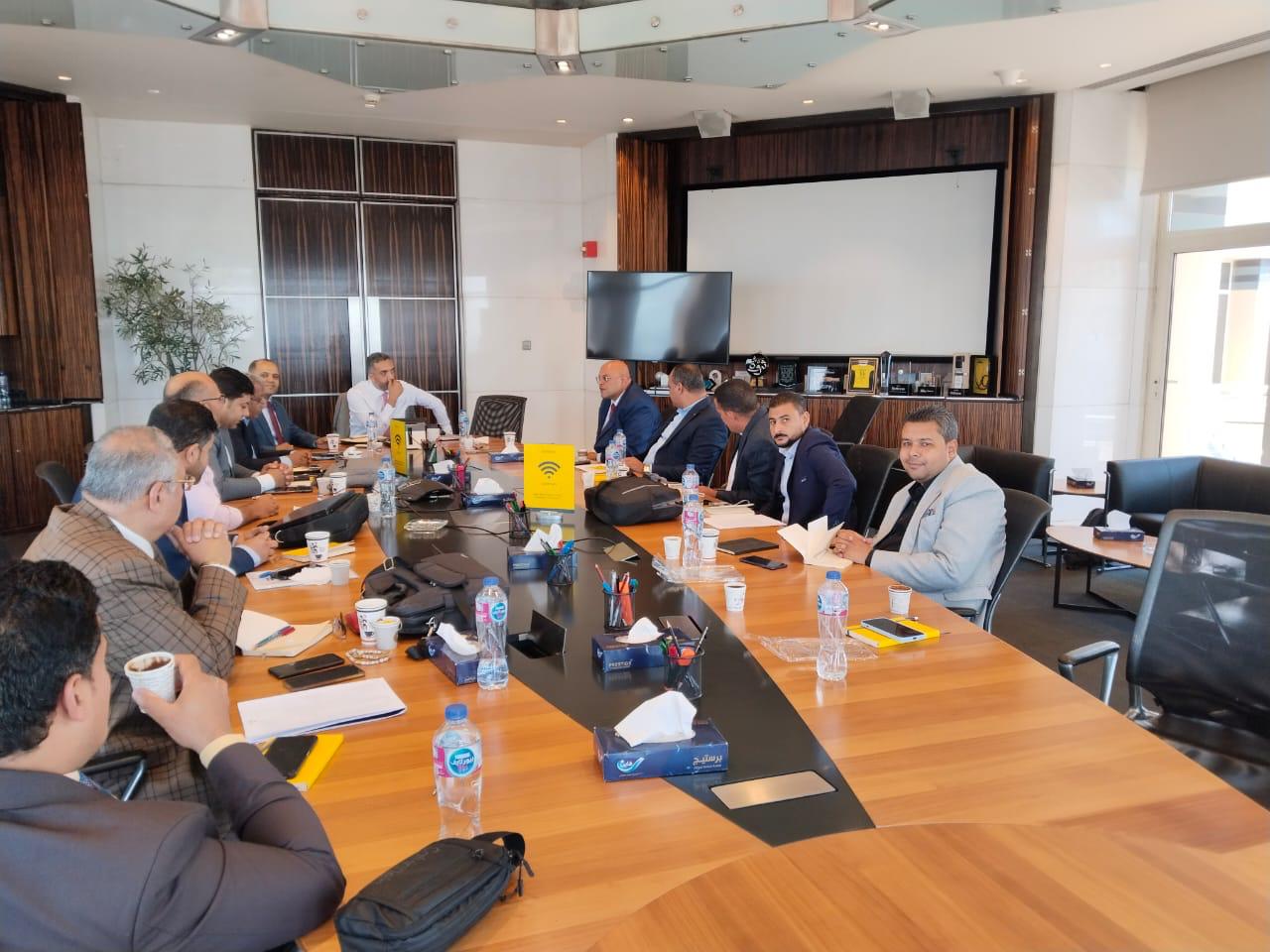
Successful Business Meeting with Cash
01.
Beltone’s Sustainability team will arrange a meeting for Cash with UN Women to explore potential collaboration opportunities.
02.
Cash has set an inspiring target to achieve a gender balance of 50% women and 50% men in its workforce and the individuals they train by the end of 2025.
03.
Cash will provide us with quarterly updates on their achievements, including the percentage of women and youth among their portfolio.
04.
Cash is dedicated to going paperless and is in the process of developing an application for Cash, as well as a system for archiving.
05.
Cash is actively working on developing a comprehensive Environmental Policy.
06.
Beltone’s Sustainability team is ready to support Cash in their Health Campaign, and we can also provide sustainability awareness sessions for the children of the families they serve.
07.
Cash will share inspiring stories about their clients, which can be featured in Beltone’s Sustainability Newsletter. These stories will serve as valuable content to showcase the positive impact Cash has on its clients.



Successful Business Meeting with Cash
01.
Beltone’s Sustainability team will arrange a meeting for Cash with UN Women to explore potential collaboration opportunities.
02.
Cash has set an inspiring target to achieve a gender balance of 50% women and 50% men in its workforce and the individuals they train by the end of 2025.
03.
Cash will provide us with quarterly updates on their achievements, including the percentage of women and youth among their portfolio.
04.
Cash is dedicated to going paperless and is in the process of developing an application for Cash, as well as a system for archiving.
05.
Cash is actively working on developing a comprehensive Environmental Policy.
06.
Beltone’s Sustainability team is ready to support Cash in their Health Campaign, and we can also provide sustainability awareness sessions for the children of the families they serve.
07.
Cash will share inspiring stories about their clients, which can be featured in Beltone’s Sustainability Newsletter. These stories will serve as valuable content to showcase the positive impact Cash has on its clients.
Alert: Significant Plastic
Bottles Usage at
Beltone Premises
In the last seven months, Beltone premises have used a staggering 50,600 plastic bottles. This is a substantial amount of plastic waste that significantly impacts our environment. We urge everyone to switch to their own reusable bottles instead of relying on single-use plastic bottles. By making this small but impactful change, we can collectively make a significant difference in reducing plastic waste and foste`ring a greener workplace.
Let’s continue to work together in embracing the Plastic Free July theme and making a positive impact on our environment.
Thank you for your dedication to sustainability.
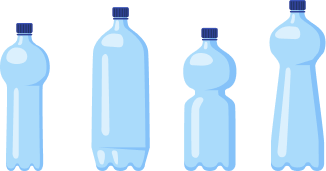

Innovating with recycled materials
We’re excited to announce our active participation in the Plastic Free movement! As part of our commitment to sustainability, we have taken significant steps to reduce our plastic consumption and promote responsible practices within Beltone.
Throughout this month, we focused on collecting and recycling our plastic water bottles. We gathered an impressive number of bottles, and rather than letting them contribute to plastic waste, we decided to give them new life as eco-friendly coasters through the recycling process. By repurposing these materials, we not only reduced our environmental impact but also created functional and sustainable products.
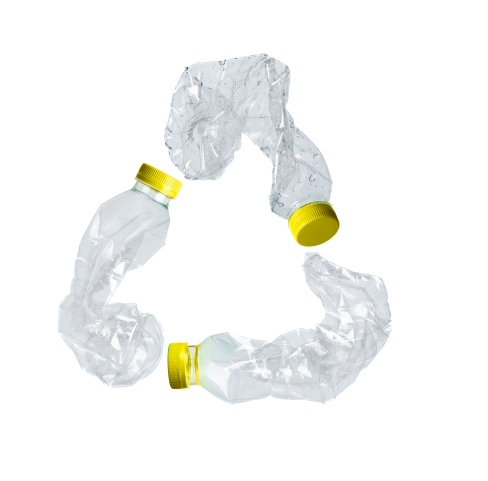










Additionally, numerous Egyptian companies are actively engaged in recycling and creating wonderful products from plastic waste. These innovative products and ideas demonstrate the potential of plastic waste to be transformed into valuable resources, further emphasizing the importance of reducing our reliance on single-use plastics.
You can check the photos to see some of the impressive products and ideas they have developed from plastic waste!Let’s continue to work together in embracing the Plastic Free July theme and making a positive impact on our environment.
Exploring
Meanings

Recycling
involves the collection and processing of waste materials to create new products. The process typically includes sorting, cleaning, and transforming the materials into raw materials that can be used to manufacture new items. The goal of recycling is to divert waste from landfills, conserve resources, and reduce the demand for new raw materials. Examples include recycling paper, plastic, glass, and metal.

Upcycling
is the process of taking discarded or unwanted materials and transforming them into products of higher value or quality. Instead of breaking down materials into raw form, upcycling involves creative reuse, where the original item is repurposed to serve a different function or given a new aesthetic appeal. Upcycling promotes creativity, sustainability, and the reduction of waste. For instance, transforming old wooden pallets into furniture or repurposing glass bottles into decorative vases are examples of upcycling.

Downcycling
refers to the process of recycling materials into products of lower value or quality compared to the original item. It involves breaking down materials into simpler forms or lower-grade materials that may not be suitable for the same applications as the original product. Downcycling is often the result of limitations in the recycling process or the degradation of materials. For example, recycling plastic bottles into plastic fibers for lower-grade textiles would be considered downcycling.
Tips to reduce plastic Usage
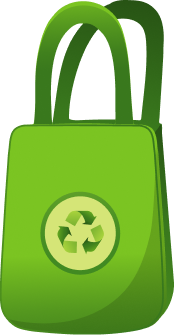
01.
Carry reusable Shopping bags
Single-use plastic bags take hundreds of years to break down, and unfortunately, many of them end up polluting our oceans, causing significant harm to marine life. Therefore, by embracing reusable bags, we have the power to reduce plastic waste and protect our precious ecosystems. To make a positive change, consider replacing single-use plastic bags with reusable shopping bags made of fabric or other sustainable materials. By keeping a few reusable bags handy whenever you go shopping, you can ensure that you can carry your purchases without relying on plastic bags provided by stores. This simple switch will not only help minimize plastic waste but also contribute to preserving our environment.

02.
Carry reusable bottle
Single-use plastic water bottles contribute to a significant amount of plastic waste globally, but by using a reusable bottle, you can help reduce the estimated 50 billion plastic water bottles consumed each year. Opting for a reusable bottle also promotes the conservation of natural resources by reducing the need for plastic bottle production and the extraction of raw materials.

03.
Take a reusable coffee cup
Disposable coffee cups, often lined with plastic, are a significant contributor to the global plastic waste crisis, with an estimated usage of over 500 billion cups annually. However, by opting for a reusable coffee cup, you can play an active role in preventing the unnecessary disposal of these cups, which are challenging to recycle due to their plastic lining. By making this small change in your daily routine, you can contribute to reducing plastic waste and its detrimental impact on the environment.
Tips to reduce plastic Usage
01.

Carry reusable Shopping bags
02.

Carry reusable bottle
Single-use plastic water bottles contribute to a significant amount of plastic waste globally, but by using a reusable bottle, you can help reduce the estimated 50 billion plastic water bottles consumed each year. Opting for a reusable bottle also promotes the conservation of natural resources by reducing the need for plastic bottle production and the extraction of raw materials.
03.

Take a reusable coffee cup
Disposable coffee cups, often lined with plastic, are a significant contributor to the global plastic waste crisis, with an estimated usage of over 500 billion cups annually. However, by opting for a reusable coffee cup, you can play an active role in preventing the unnecessary disposal of these cups, which are challenging to recycle due to their plastic lining. By making this small change in your daily routine, you can contribute to reducing plastic waste and its detrimental impact on the environment.
Total
Collected Waste
1146 Kg
Recycled
Waste
906 Kg= (79.06 %)

Total
Collected Waste
1146 Kg
Recycled
Waste
906 Kg= (79.06 %)
- Tony Cardenas
E Card recycling for Sustainable progress


